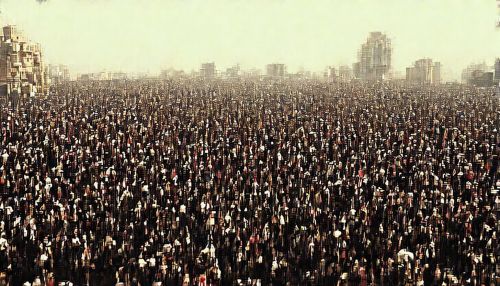Egyptian Revolution of 2011
Background
The Egyptian Revolution of 2011 was a series of mass protests, demonstrations, and civil disobedience actions that took place in Egypt from 25 January to 11 February 2011. The revolution was part of the broader Arab Spring movement that swept across the Middle East and North Africa. The protests were driven by dissatisfaction with the regime of President Hosni Mubarak, who had been in power for nearly 30 years.


Causes
The causes of the Egyptian Revolution are multifaceted, including political, economic, and social factors. The Mubarak regime was characterized by autocracy, corruption, and a lack of political freedoms. Economically, Egypt faced high unemployment rates, particularly among the youth, and a widening wealth gap. Socially, there was widespread dissatisfaction with the perceived nepotism and corruption of the Mubarak regime.
Protests and Demonstrations
The protests began on 25 January 2011, a day that is now known as the "Day of Rage". Thousands of Egyptians took to the streets in cities across the country, including Cairo, Alexandria, and Suez. The protestors demanded the end of Mubarak's regime and called for political and economic reforms. The protests were largely peaceful, although there were instances of violence and clashes with the police.
Government Response
The Mubarak government's response to the protests was initially dismissive, but as the protests grew in size and intensity, the government resorted to more repressive measures. These included the use of tear gas, water cannons, and rubber bullets against protestors, as well as the arrest and detention of thousands of protestors. The government also attempted to control the flow of information by shutting down the internet and mobile phone networks.
Fall of Mubarak
On 11 February 2011, after 18 days of protests, Vice President Omar Suleiman announced that Mubarak had resigned and that the Supreme Council of the Armed Forces would assume control of the country. This marked the end of Mubarak's 30-year rule and was seen as a major victory for the protestors.
Aftermath
The aftermath of the revolution was marked by a period of political instability and economic challenges. The Supreme Council of the Armed Forces, which took over from Mubarak, was initially welcomed by the protestors. However, it soon faced criticism for its handling of the transition period, particularly its use of military trials for civilians and its perceived reluctance to implement meaningful reforms.
Legacy
The Egyptian Revolution of 2011 is considered a significant event in the history of Egypt and the wider Arab world. It led to the end of Mubarak's 30-year rule and ushered in a period of political change and instability. The revolution also inspired other protests and uprisings in the region, as part of the broader Arab Spring movement.
